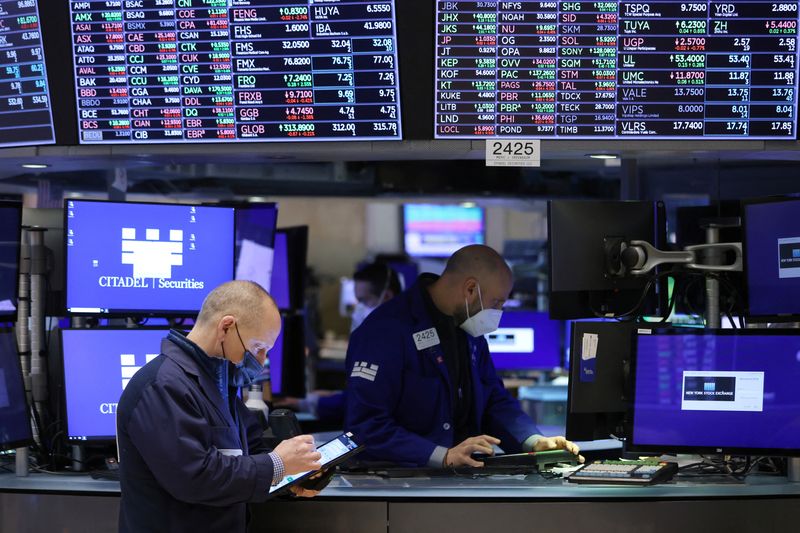Select Language

Investing.com-- U.S. stock index futures were little changed on Wednesday evening after Wall Street closed higher driven by President Donald Trump’s decision to grant a one-month exemption for automakers from the newly imposed 25% tariffs on imports from Mexico and Canada.
S&P 500 Futures were largely muted at 5,852.25 points, while Nasdaq 100 Futures inched 0.2% lower to 20,632.75 points by 19:25 ET (00:25 GMT). Dow Jones Futures were unchanged at 43,068.0 points.
Markets get respite as Trump defers auto tariffs
The White House announced on Wednesday a one-month exemption from the newly imposed 25% tariffs on vehicle imports from Mexico and Canada, offering temporary relief to U.S. automakers.
This exemption allows manufacturers additional time to adjust their supply chains and explore long-term solutions, mitigating immediate financial pressures.
Both neighboring countries are integral to the North American supply chain, with numerous parts and vehicles crossing borders multiple times during production. The United States-Mexico-Canada Agreement (USMCA) underscores this relationship, setting content rules that many vehicles already comply with, and ensuring duty-free access.
Meanwhile, Bloomberg News reported that Trump is considering exempting certain agricultural products from the tariffs imposed on Canada and Mexico.
These developments suggest the administration may be open to negotiations for lasting tariff solutions.
The stock market responded positively to the exemption announcement.
The Dow Jones Industrial Average closed 1.1% higher on Wednesday, ending a two-day losing streak. The S&P 500 also advanced by 1.1%, while the NASDAQ Composite climbed 1.5%.
Notably, shares of major automakers jumped, with General Motors (NYSE:GM) advancing 7.2%, and Ford (NYSE:F) climbing 5.8%.
Stellantis NV (BIT:STLAM) shares surged 9.2%, while U.S.-listed Toyota Motor (NYSE:TM) shares jumped 6.5%.
Investors assess services activity data; key jobs report awaited
Data on Wednesday showed that the U.S. services sector experienced unexpected growth in February, with the Institute for Supply Management’s (ISM) Services PMI rising to 53.5 from January’s 52.8, surpassing forecasts.
However, input prices also increased, exacerbated by new tariffs imposed by President Trump’s administration.
These tariffs, coupled with rising raw material costs at factories, suggest inflation may increase in the coming months.
Investors are now keenly awaiting Friday’s employment report, to gauge the health of the U.S. economy, and the Federal Reserve’s future interest rate trajectory.

